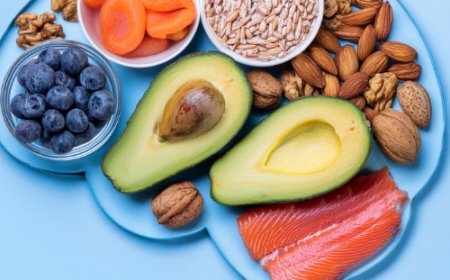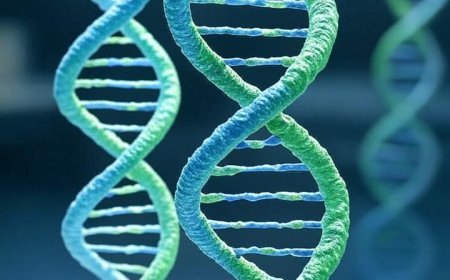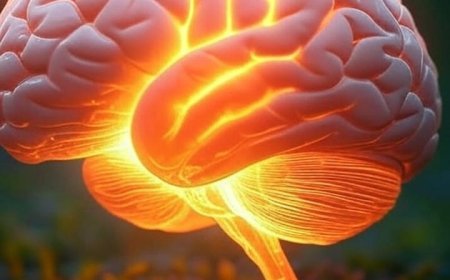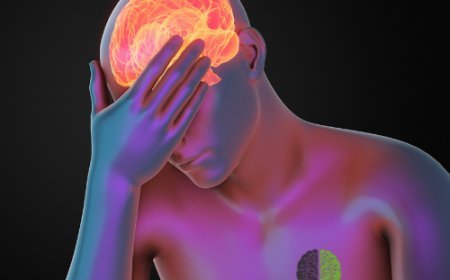Food Health
The Food-Mood Connection: How What You Eat Shapes Your Mental Health For decades, the conversation around mental health largely revolved around therapy, medication, and lifestyle adjustments. While these pillars remain crucial, a burgeoning field known as "nutritional psychiatry" is shedding light on a powerful, often overlooked factor: the food we eat. Emerging research demonstrates an undeniable link between our dietary choices and our mental well-being, highlighting that our plates profoundly impact our brains, moods, and cognitive function.
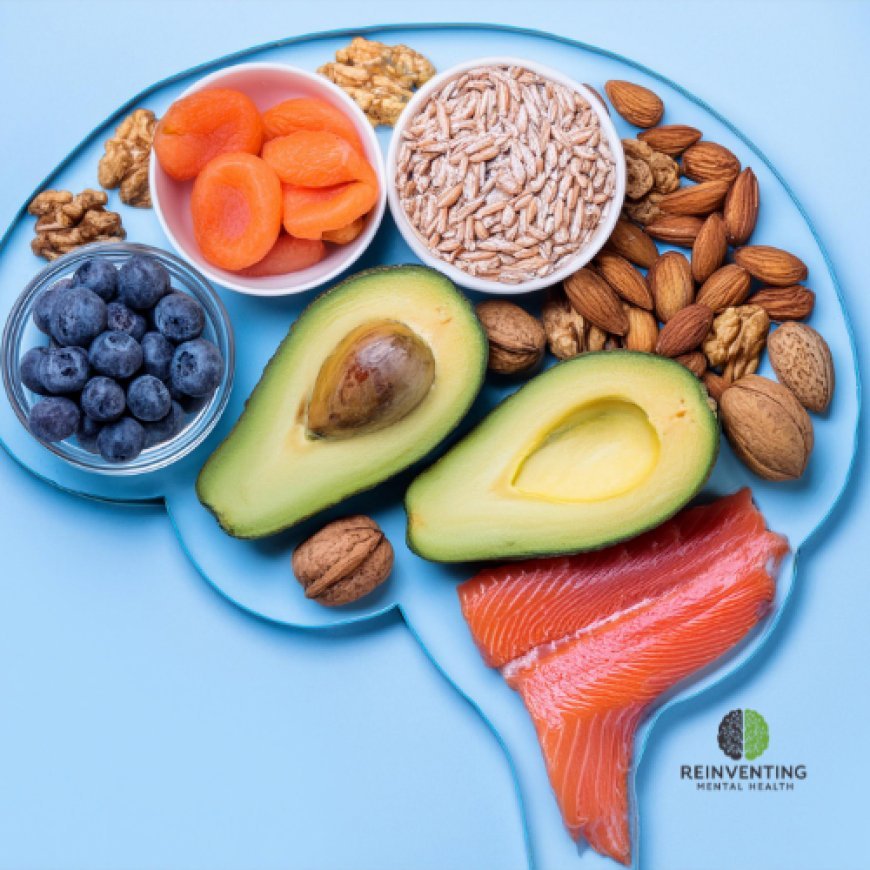
The Food-Mood Connection: How What You Eat Shapes Your Mental Health
For decades, the conversation around mental health largely revolved around therapy, medication, and lifestyle adjustments. While these pillars remain crucial, a burgeoning field known as "nutritional psychiatry" is shedding light on a powerful, often overlooked factor: the food we eat. Emerging research demonstrates an undeniable link between our dietary choices and our mental well-being, highlighting that our plates profoundly impact our brains, moods, and cognitive function.
The Gut-Brain Axis: A Two-Way Street
At the heart of this connection lies the gut-brain axis, a complex, bidirectional communication network between your digestive system and your central nervous system. It's more than just a vague feeling of "butterflies in your stomach" when you're nervous; it's a constant dialogue mediated by nerves (like the vagus nerve), hormones, and most importantly, the trillions of microorganisms living in your gut – your gut microbiome.
This microbial community plays a surprisingly significant role in mental health. They produce neurotransmitters like serotonin (often called the "feel-good" hormone), which largely originates in the gut. A healthy and diverse gut microbiome is crucial for optimal neurotransmitter production and overall brain function. When the gut is imbalanced or inflamed, this communication can go awry, potentially contributing to mental health challenges.
The Good Guys: Foods That Fuel a Healthy Mind
Just as certain foods nourish our bodies, others are specifically beneficial for our brains and mood. Prioritizing these can be a powerful step toward improved mental well-being:
Whole, Unprocessed Foods: A diet rich in whole grains, fruits, vegetables, legumes, nuts, and seeds provides a steady supply of complex carbohydrates, fiber, vitamins, and minerals. This slow release of energy helps maintain stable blood sugar levels, preventing the energy crashes and mood swings often associated with refined sugars and processed foods.
Omega-3 Fatty Acids: Found abundantly in fatty fish (salmon, mackerel, sardines), walnuts, chia seeds, and flaxseeds, omega-3s are vital building blocks for brain cells. They possess powerful anti-inflammatory properties and play a crucial role in neurotransmitter function, memory, and mood regulation. Research consistently links higher omega-3 intake with a reduced risk of depression and anxiety.
Probiotic and Prebiotic Foods: To nurture a healthy gut microbiome, incorporate probiotic-rich foods like yogurt, kefir, sauerkraut, kimchi, and other fermented vegetables. Prebiotics, found in foods like garlic, onions, bananas, and oats, act as food for beneficial gut bacteria, helping them thrive.
Leafy Greens and Colorful Vegetables: Spinach, kale, broccoli, and a rainbow of other vegetables are packed with vitamins (especially B vitamins like folate), minerals, and antioxidants. These nutrients are essential for nerve function, energy production, and protecting brain cells from oxidative stress and inflammation. Folate, for example, is critical for the production of mood-regulating neurotransmitters.
Lean Proteins: Sources like lean meats, poultry, eggs, beans, and lentils provide essential amino acids, which are the building blocks for neurotransmitters. Tryptophan, found in foods like turkey and bananas, is a precursor to serotonin.
Dark Chocolate: In moderation, high-cocoa dark chocolate contains flavonoids and antioxidants that can improve blood flow to the brain, boost mood, and even reduce negative feelings by influencing gut bacteria.
The Bad Actors: Foods That Can Hinder Mental Health
Conversely, certain dietary patterns and foods can contribute to inflammation, blood sugar dysregulation, and an imbalanced gut microbiome, all of which can negatively impact mental health.
Processed and Ultra-Processed Foods: These include fast food, packaged snacks, sugary cereals, and ready meals. They are often high in unhealthy fats (trans fats, saturated fats), added sugars, artificial ingredients, and sodium, while being low in essential nutrients and fiber. This type of diet is linked to increased inflammation, which can disrupt brain function and exacerbate symptoms of anxiety and depression.
Excessive Sugar and Refined Carbohydrates: While offering a quick energy burst, sugary drinks, candies, white bread, and pastries lead to rapid spikes and subsequent crashes in blood sugar. This "rollercoaster" can trigger irritability, fatigue, and mood swings. High sugar intake can also negatively impact the gut microbiome and promote inflammation.
Unhealthy Fats: Trans fats (found in many fried and processed foods) and an imbalanced intake of omega-6 fatty acids (common in vegetable oils) can promote inflammation in the body and brain, potentially increasing the risk of mood disorders.
Excessive Caffeine and Alcohol: While a moderate amount of coffee might boost alertness, too much caffeine can trigger anxiety, jitters, and interfere with sleep, all of which worsen mental health. Alcohol, a central nervous system depressant, can offer temporary relaxation but ultimately disrupts brain chemistry and sleep, making anxiety and depression worse over time.
Artificial Sweeteners: Some studies suggest a link between certain artificial sweeteners (like aspartame) and mood disturbances, including irritability and anxiety.
Making Mindful Choices for Mental Wellness
Embracing a diet that supports mental health doesn't require drastic, overnight changes. It's about making conscious, consistent choices over time:
Prioritize Whole Foods: Build your meals around fruits, vegetables, whole grains, lean proteins, and healthy fats.
Hydrate: Don't underestimate the power of water. Dehydration can affect mood, concentration, and energy levels.
Mindful Eating: Pay attention to how different foods make you feel. Do you notice a crash after sugary treats? Do you feel more energetic after a balanced meal? This awareness can guide your choices.
Gradual Changes: Instead of an overhaul, try incorporating one new healthy habit at a time, like adding a serving of vegetables to every meal or swapping sugary drinks for water.
Seek Professional Guidance: For those struggling with significant mental health conditions, diet is a powerful adjunct, but not a replacement, for professional medical and psychological support. A registered dietitian specializing in mental health can provide personalized guidance.
Our plates are more than just fuel for our bodies; they're nourishment for our minds. By recognizing the intricate dance between what we eat and how we feel, we gain a powerful tool for cultivating greater mental resilience, clarity, and emotional well-being.
What's Your Reaction?
 Like
1
Like
1
 Dislike
0
Dislike
0
 Love
0
Love
0
 Funny
0
Funny
0
 Angry
0
Angry
0
 Sad
0
Sad
0
 Wow
0
Wow
0




